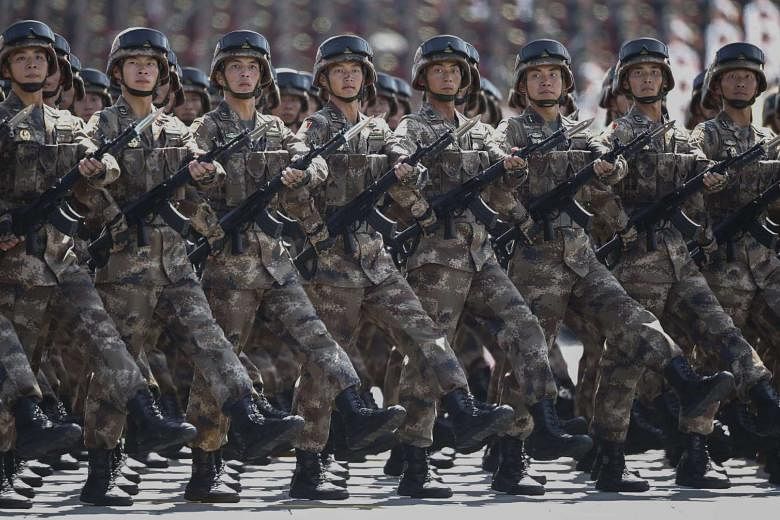In its editorial on Mar 6, the paper reminds Beijing that it has a responsibility to eliminate market concerns rather than spending on improving its military strengths.
Can China bring its economy to a soft landing by comprehensively employing policies such as structural reforms and fiscal measures?
China's National People's Congress has opened. In his address to the congress, Premier Li Keqiang announced the nation's economic growth target will be set at "at least 6.5 per cent" in the 13th five-year plan for economic and social policies from 2016 to 2020, down from an annual average of 7 per cent in the previous plan. The figure was fixed in anticipation of such factors as a declining labour force.
Mr Li also said the country would further strengthen active fiscal policies.
China intends to raise the ratio of the fiscal deficit to the gross domestic product to 3 per cent this year from 2.4 per cent last year, and expand fiscal expenditure.
The slowdown of the Chinese economy has triggered low crude oil prices and economic downturns in other emerging economies.
The primary cause for confusion on world financial markets is suspicion whether China will be able to smoothly shift to consumption-oriented stable growth from the high-growth model that depends on investment and exports.
The administration of President Xi Jinping must fulfill the responsibility of eliminating market concerns through appropriate management of the economy.
The key will be painful reforms, including the selection of ballooning government-owned companies, and the merger and abolition of excessive production facilities, such as those for iron and steel production.
It will also be necessary to foster advanced technology industries in robotics, medicine and other fields as a driving force for new economic growth.
It is also important to narrow the income gap between urban and farming areas and create a middle class that can drive consumption-led growth.
Meanwhile, the expansion of China's military power does not stop.
China said at the congress that it would raise its military spending this year by 7.6 per cent from the previous year.
This is more than triple Japan's defense-related spending.
Although the increase is the first single-digit rise in six years, there is no change to the continuing growth of the country's military budget.
Mr Li stressed in his address that China would proceed with preparations for military struggle.
This reflects the Xi administration's policy of maintaining a strong military to try to remove US influence in Asia by force.
To cope readily with modern warfare, China implemented a military structural reform to establish joint operation of its air, sea and ground forces and a missile force.
Budgets for the air and sea forces will receive priority.
Specifically, the focus of the military buildup is expected to be the construction of submarines and a domestically produced aircraft carrier to support its ambitious maritime advances.
China will also likely stress the development of a new type of stealth fighter and a nuclear and missile buildup.
Above all, China's military spending is said to largely exceed what was announced. Beijing will not be able to eliminate concerns in the international community if it does not explain sufficiently about its spending to make artificial islands in the South China Sea into military strongholds and other developments.
The opaque military expansion of the Xi administration only escalates regional tensions.
* The Yomiuri Shimbun is a member of The Straits Times media partner Asia News Network, an alliance of 22 newspapers.

